Gambling in Ireland has a rich history, but navigating the legal landscape can be confusing for both new and experienced players. With changing gambling laws in Ireland and evolving regulations, it’s crucial to stay informed.
Whether you’re interested in online casinos, sports betting, or lotteries, this guide covers everything you need to know about gambling laws Ireland. We’ll break down the key regulations, explain how the Gambling Regulatory Authority of Ireland (GRAI) works, and provide practical advice to ensure you’re playing legally and safely.
Key Irish Gambling Laws
Ireland’s gambling laws are primarily governed by a series of acts, each addressing different aspects of the gambling industry. Here’s an overview of the most significant gambling laws in Ireland:
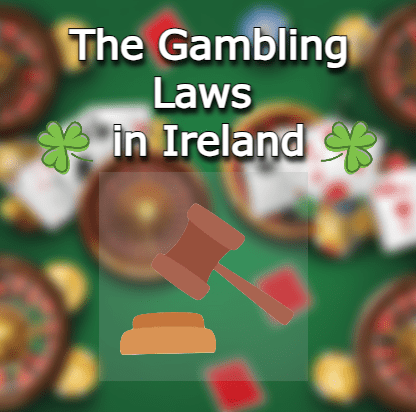
- Betting Act 1931
Originally enacted to regulate betting on horse races and greyhound racing, this law has been amended several times to cover other forms of betting, including online platforms. - Gaming and Lotteries Act 1956
This act covers gaming (excluding betting) and lotteries. It sets out rules for casino operations, bingo, and lotteries, including prize limits and licensing requirements. - Betting (Amendment) Act 2015
Introduced to modernize the Betting Act 1931, this amendment expanded the scope to include online and remote betting operators, requiring them to obtain licenses to operate in Ireland. - Gaming and Lotteries (Amendment) Act 2019
This amendment aimed to update the outdated Gaming and Lotteries Act 1956, introducing stricter rules on advertising, licensing, and prize limits. - Gambling Regulation Bill 2022
This bill, once fully implemented, will consolidate existing gambling laws under a single framework, establishing the Gambling Regulatory Authority of Ireland (GRAI) to oversee all gambling activities. The bill also focuses on player protection and responsible gambling.
Gambling Regulatory Authority of Ireland (GRAI)
The Gambling Regulatory Authority of Ireland (GRAI) is set to become the central regulatory body overseeing all forms of gambling in the country.
Once fully operational, GRAI will have the authority to issue licenses, enforce regulations, and ensure that operators comply with the law. GRAI will also play a critical role in promoting responsible gambling and protecting vulnerable players.
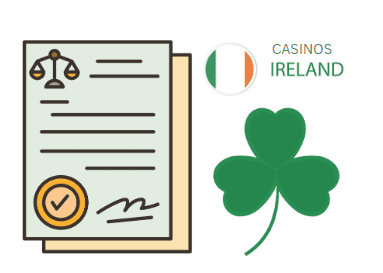
Key Functions of GRAI:
- Licensing: GRAI will issue and renew licenses for all gambling operators, including online casinos, sportsbooks, and land-based establishments.
- Enforcement: The authority will have the power to investigate and take action against operators who violate the law.
- Player Protection: GRAI will implement measures to protect players, including setting limits on deposits, bets, and advertising.
- Responsible Gambling: The authority will promote responsible gambling practices and provide resources for players who may be at risk of developing gambling-related problems.
Legal Gambling Age and Player Protection Measures
In Ireland, the legal gambling age is 18 for most forms of gambling, including online casinos, betting shops, and lotteries. This age limit is strictly enforced, with operators required to verify the age of their players before allowing them to gamble.
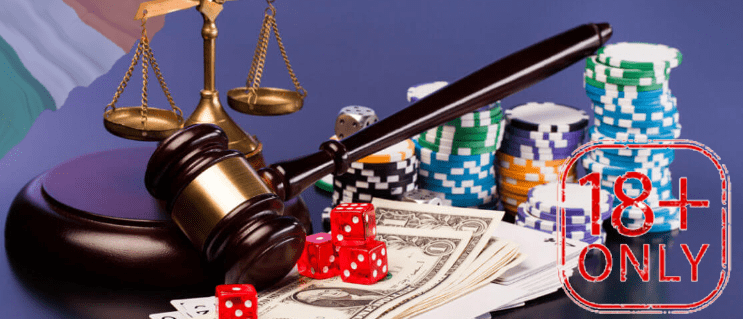
Player protection is a key focus of Irish gambling laws. The GRAI has implemented several measures to ensure that players are protected from the potential harms of gambling.
These include mandatory self-exclusion programs, where players can voluntarily ban themselves from gambling for a set period, and limits on the amount of money that can be deposited or wagered.
Illegal Gambling Penalties
Gambling illegally in Ireland, whether as a player or an operator, can lead to serious consequences. The Irish government takes illegal gambling seriously and has implemented strict penalties to deter unlawful activities.
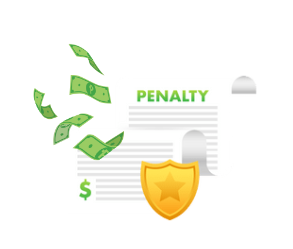
- For Operators: Running an unlicensed gambling operation can result in heavy fines, imprisonment, and the seizure of assets. Repeat offenders face even harsher penalties.
- For Players: Participating in illegal gambling activities can lead to fines and, in some cases, imprisonment. While players are less likely to face severe penalties compared to operators, it’s still important to avoid unlicensed gambling sites and establishments.
License Requirements for Operators
To legally operate, companies must obtain an online gambling license Ireland from the Gambling Regulatory Authority of Ireland (GRAI). The licensing process is designed to ensure that all operators meet strict standards for fairness, transparency, and player protection.
Key Requirements for a Gambling License:
- Financial Stability: Operators must demonstrate they have the financial resources to operate sustainably and pay out winnings.
- Fair Play: Games must be fair, without manipulation or unfair practices. Random number generators (RNGs) used in online casino games must be independently tested.
- Player Protection: Operators must implement measures to protect players, including self-exclusion options, deposit limits, and access to support for gambling addiction.
- Compliance: Operators must comply with all relevant gambling laws and regulations, including anti-money laundering (AML) and data protection laws.
Irish Casino Laws Governing Different Types of Gambling
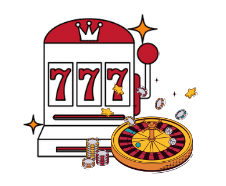
Casino Gambling: In Ireland, the operation of physical casinos is tightly controlled, with only a few licensed establishments permitted to operate. These casinos must adhere to strict regulations regarding the types of games offered, hours of operation, and customer age verification.
Online casinos, which have grown in popularity, must also be licensed by the GRAI and follow stringent guidelines to ensure fair play and player protection.

Sports Betting: Sports betting is one of the most popular forms of gambling in Ireland, with both in-person and online options widely available.
The Betting Act 1931, particularly after its amendment in 2015, sets out the requirements for operators, including licensing, advertising standards, and responsible gambling practices. Operators are required to pay taxes on their betting activities, contributing to the economy.

Lotteries: The National Lottery is a major feature of Ireland’s gambling landscape, operated under the National Lottery Act 2013. This act ensures that lottery games, including scratch cards and draws, are conducted transparently and that proceeds are directed toward good causes.
Smaller lotteries, such as local charity raffles, are governed by the Gaming and Lotteries Act 1956, which limits prize amounts and requires permits for operation.
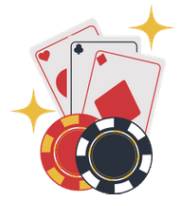
Poker: Poker is legal in Ireland under certain conditions. Games are typically played in private members’ clubs, which must be licensed and comply with specific regulations to prevent exploitation. Larger poker tournaments require additional licensing and are closely monitored to ensure compliance with anti-money laundering Irish gambling laws.
Online poker is also legal, provided the site is licensed by the GRAI, ensuring that games are fair and that players’ funds are protected.
Taxation Laws for Gambling Winnings
One of the more player-friendly aspects of Irish gambling law is the winnings tax treatment. In Ireland, gambling winnings are generally not subject to tax. Whether you’ve won big at the casino, the races, or through an online bet, your winnings are yours to keep, tax-free. However, operators are subject to taxes on their profits, which helps fund public services.
Responsible Gambling in Ireland
Promoting responsible gambling is a key priority for the Irish government and the GRAI. Operators are required to implement a range of measures designed to help players gamble responsibly and avoid developing gambling-related problems.

Responsible Gambling Initiatives:
- Education: Operators must provide players with information about responsible gambling and the risks associated with gambling.
- Tools: Players should have access to tools that help them manage their gambling activities, such as deposit limits, reality checks, and self-exclusion options.
- Support: Operators must offer links to support organizations and helplines for players who need help with gambling addiction.
Why Are These Gambling Laws Ireland Important?
These laws are here to make sure that everyone who enjoys gambling in Ireland can do so safely and fairly. They help protect players from scams, keep games honest, and ensure that only trustworthy companies can operate. In short, these rules are all about making sure that your experience is fun, secure, and free from worry.
Without these gambling laws Ireland, things could get a bit wild, so they play a big role in keeping everything in check and looking out for you! With casinoirish.com – you’ll find only licensed casinos, so you can relax knowing you’re playing in safe and regulated environments.
FAQ
What is the GRAI?
The GRAI, or Gambling Regulatory Authority of Ireland, is the regulatory body overseeing all gambling activities in Ireland, ensuring compliance with gambling laws, fair play, and player protection.
Is online gambling legal in Ireland?
Yes, online gambling is legal in Ireland. Operators must obtain a gambling license from the Gambling Regulatory Authority of Ireland to offer their services legally. This ensures that online casinos adhere to regulations that protect players and promote fair play.
How can I ensure I’m playing on a legal gambling site?
Always check if the gambling site is licensed. Licensed sites must comply with strict regulations to ensure fair play and player protection. All casinos featured on our site are licensed, so you don’t have to worry about whether you’re playing in a safe environment.
What is the legal gambling age in Ireland?
The gambling laws in Ireland say that you must be over 18 years old for all forms of gambling, including online casinos, sports betting, and lotteries.
What are the penalties for illegal gambling in Ireland?
Operators and players involved in illegal gambling can face heavy fines, imprisonment, and other legal consequences.
About the author
Born and raised in a casino. With 10+ years in the iGaming field, and with extensive knowledge of the Irish industry, I am here to serve you info about all the crucial aspects of gambling in Ireland.













